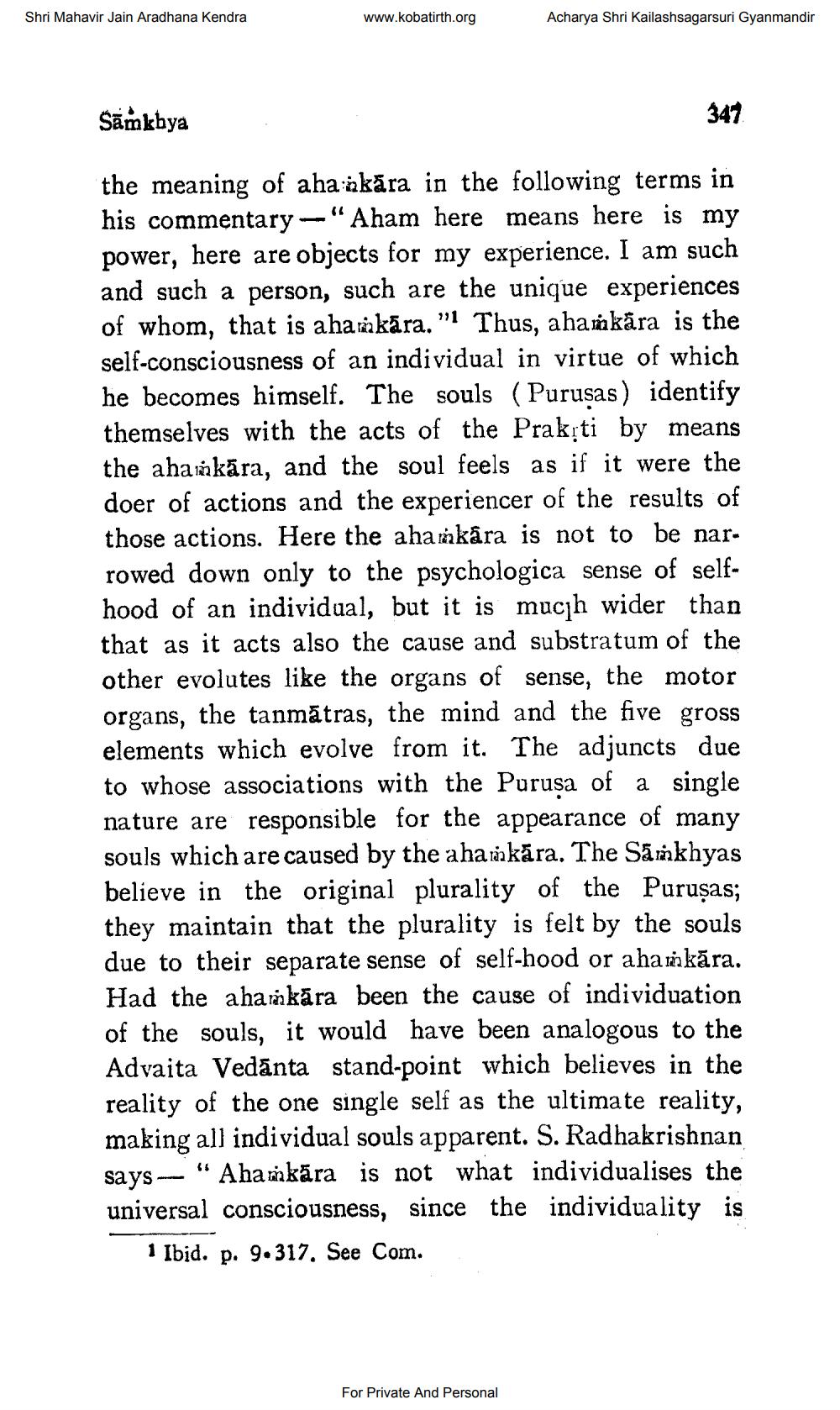________________
Shri Mahavir Jain Aradhana Kendra
www.kobatirth.org
Acharya Shri Kailashsagarsuri Gyanmandir
Samkoya
347
the meaning of aha nkāra in the following terms in his commentary -"Aham here means here is my power, here are objects for my experience. I am such and such a person, such are the unique experiences of whom, that is ahamkāra." Thus, ahankära is the self-consciousness of an individual in virtue of which he becomes himself. The souls (Purusas) identify themselves with the acts of the Prakti by means the aha nkāra, and the soul feels as if it were the doer of actions and the experiencer of the results of those actions. Here the ahankära is not to be narrowed down only to the psychologica sense of selfhood of an individual, but it is much wider than that as it acts also the cause and substratum of the other evolutes like the organs of sense, the motor organs, the tanmātras, the mind and the five gross elements which evolve from it. The adjuncts due to whose associations with the Purusa of a single nature are responsible for the appearance of many souls which are caused by the ahamkāra. The Samkhyas believe in the original plurality of the Purușas; they maintain that the plurality is felt by the souls due to their separate sense of self-hood or ahamkāra. Had the ahamkāra been the cause of individuation of the souls, it would have been analogous to the Advaita Vedanta stand-point which believes in the reality of the one single self as the ultimate reality, making all individual souls apparent. S. Radhakrishnan says --- " Ahamkāra is not what individualises the universal consciousness, since the individuality is
1 Ibid. p. 9.317, See Com.
For Private And Personal




